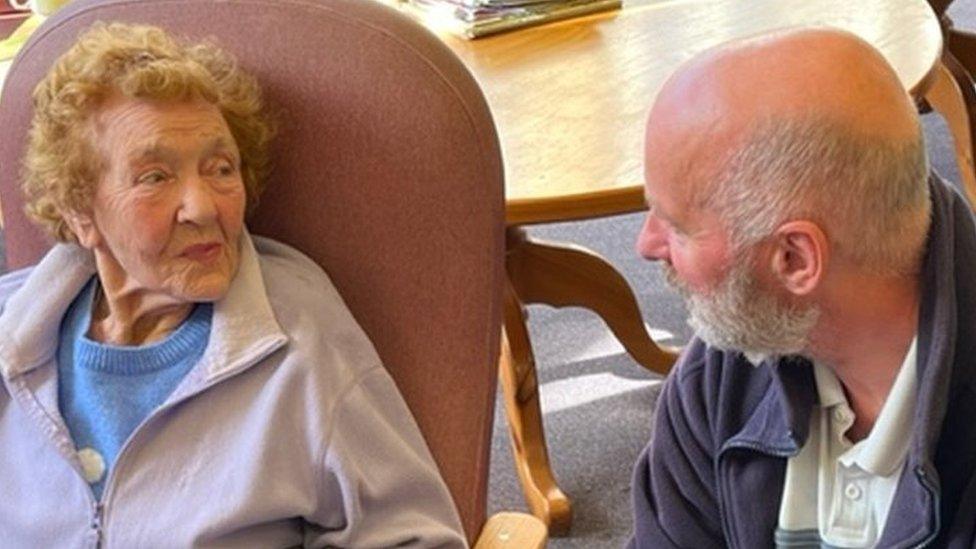'It's payback time,' dementia carer tells council
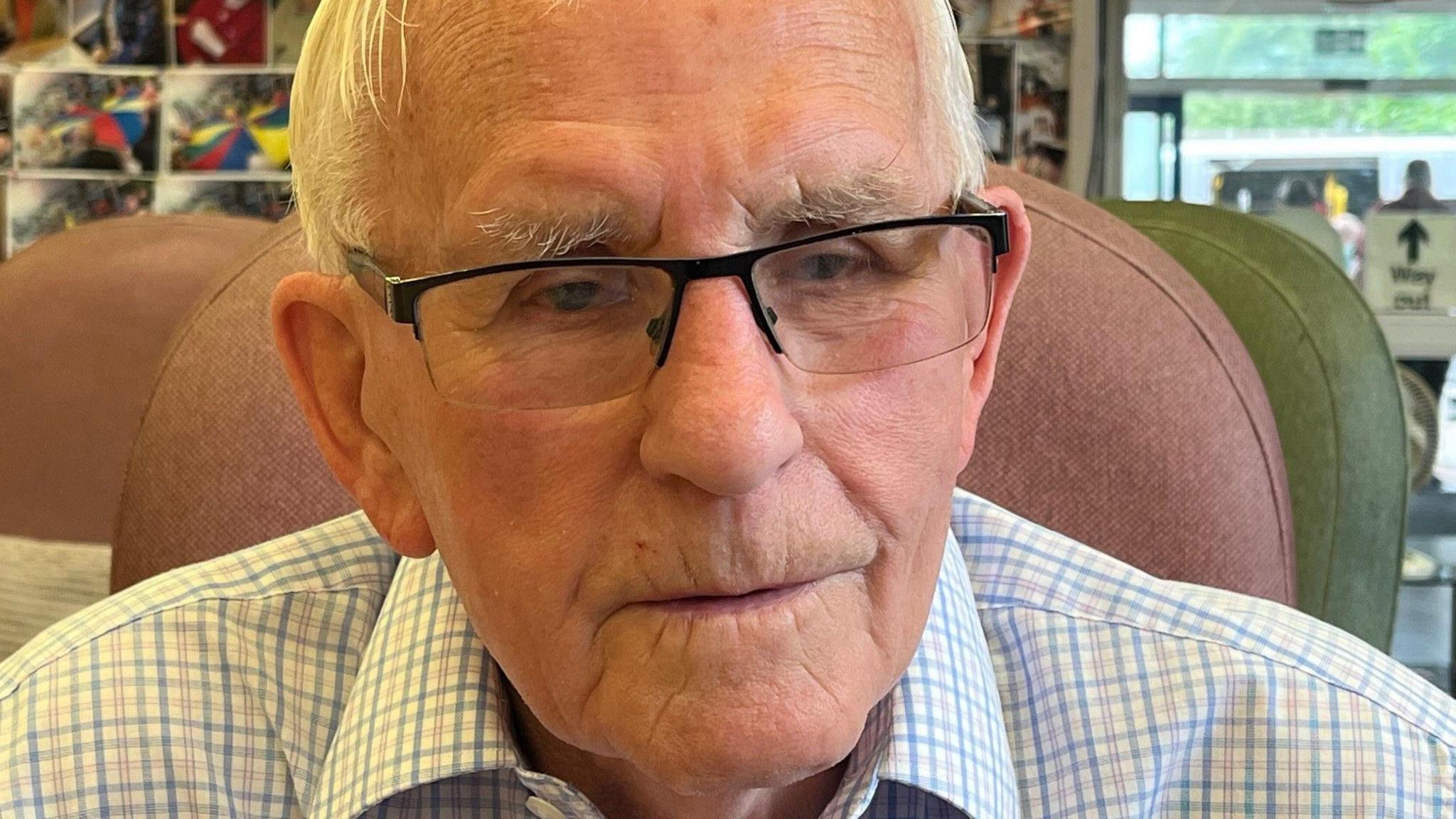
David Conn, who cares for his wife, says Endike Community Care is his lifeline
- Published
Since 1992, Endike Community Care in Hull has been looking after some of East Yorkshire's most vulnerable people, including those with dementia. But the centre's managers fear that it will close by the end of the summer unless fresh funding can be found.
BBC News went along to find out what the centre means to users and their families.
David Conn, 80, is exhausted. Mentally and physically.
Opposite him, his wife of 57 years, Shirley, sits at a table, a slice of toast on her plate next to a mug of tea.
Mrs Conn was diagnosed with Alzheimer's disease and dementia in April 2021. Her deterioration has been rapid.
"It began with Shirley pouring tea on to her cake rather than into her teacup when we visited a cafe one day," Mr Conn says.
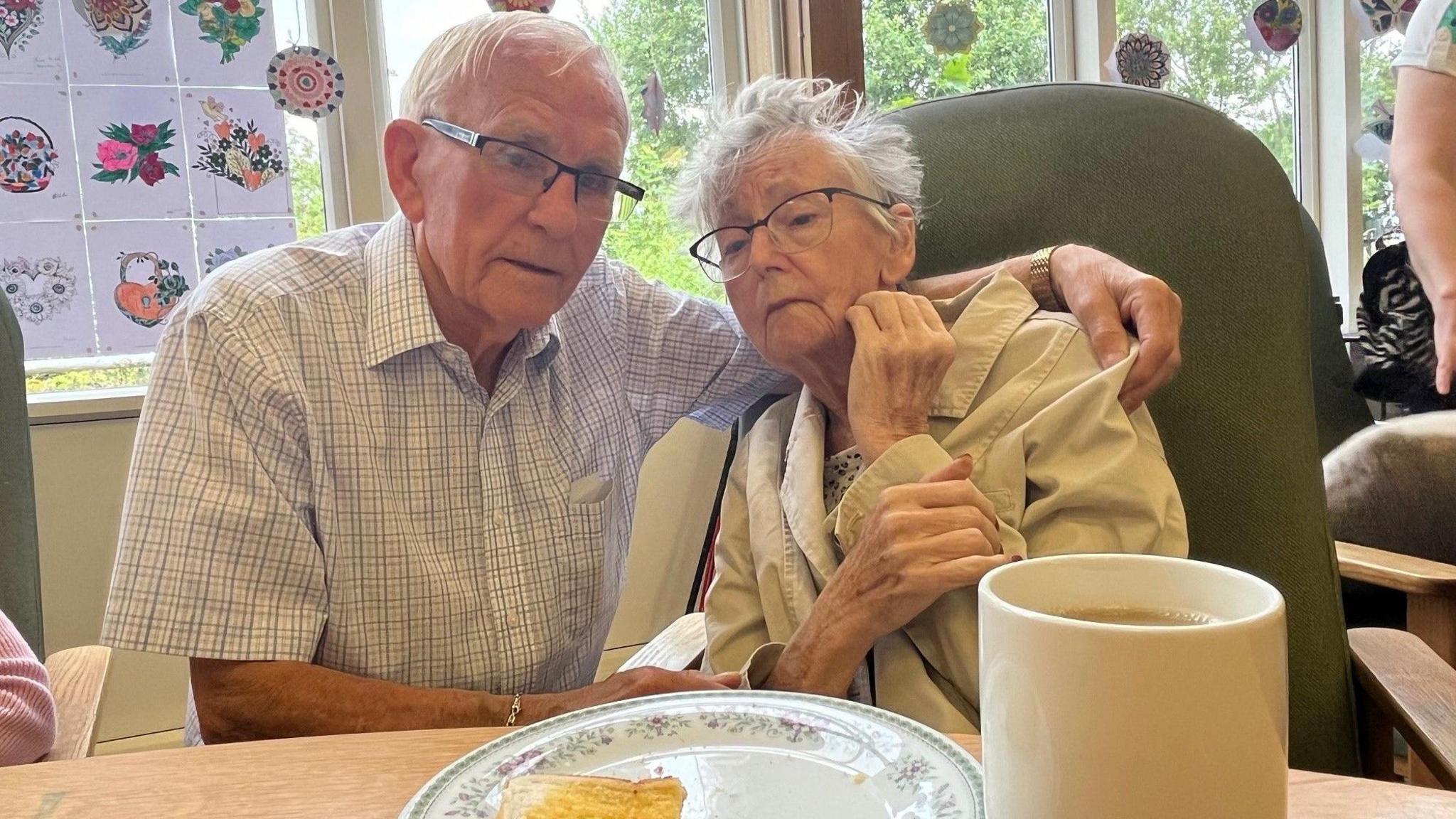
Mr Conn and his wife Shirley
For the past three months, Endike Community Care, in north Hull, has been his lifeline.
"It's somewhere Shirley can come," he says. "I know she is going to be well looked after, and it means I can have a few hours off to get things like washing, cooking and cleaning done."
However, managers fear the centre will close in two months' time unless Hull City Council reinstates funding that ended last year.
According to management, the centre received just short of £5,000 a month from the council until last summer, when the agreement came to an end.
The council has said it is continuing to support the centre and is increasing the number of people being placed there for day care.
The centre has 52 clients on its books, cared for by a team of nine dementia-trained staff.
Rubbing his wedding band as he talks, Mr Conn says: "This place is very important. It really is.
"My message to Hull City Council is this: people have worked hard all their lives and contributed to this community. Now it's payback time. Give this centre what it needs to stay open."
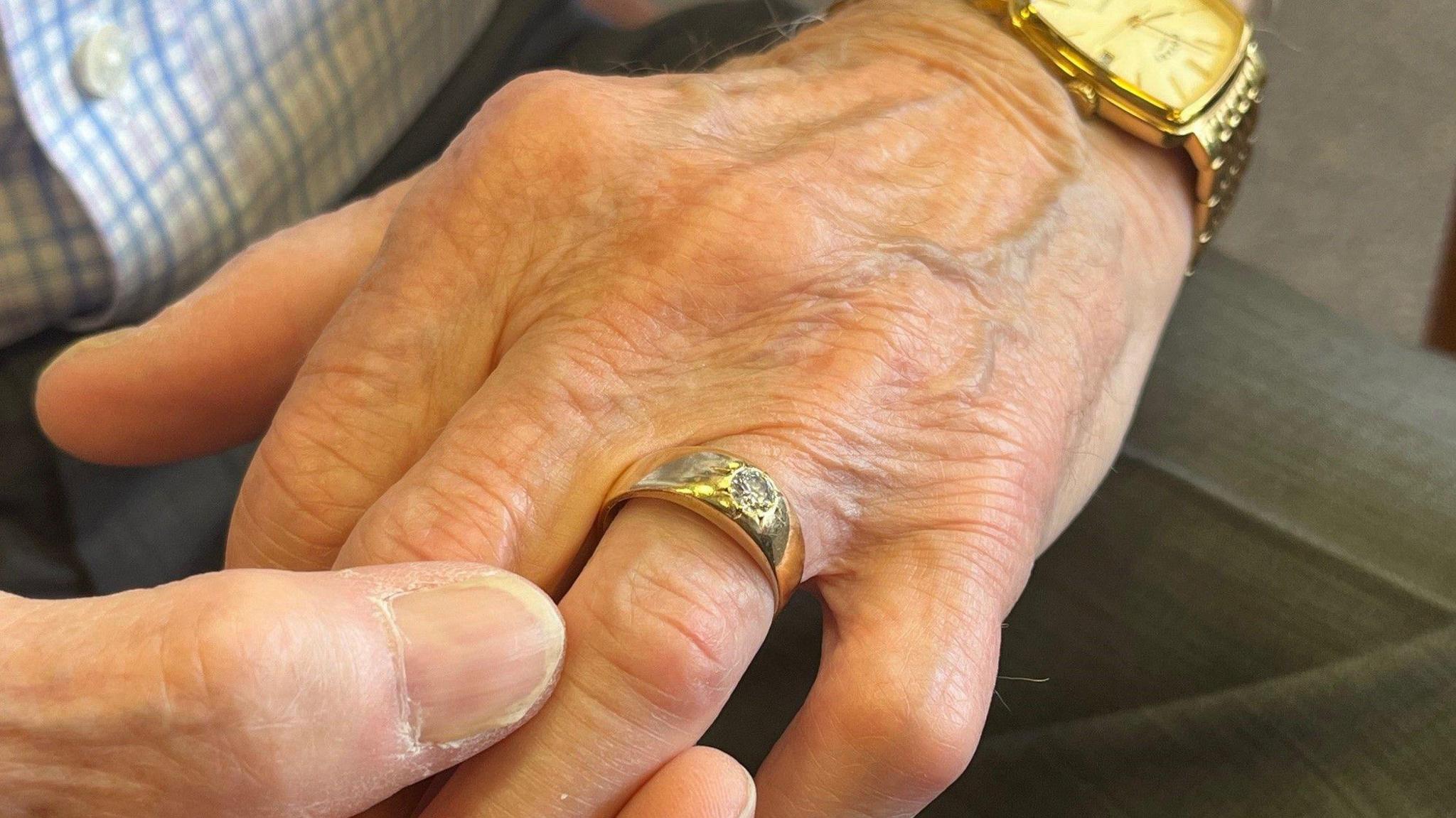
Mr Conn says knowing his wife is being well looked after at the centre gives him peace of mind
The retired caravan worker tells of life caring for his wife around the clock.
"It's hard work," he says. "It can be really frustrating. You have to try and keep your cool, especially when the person you're caring for doesn't want to do something that they need to – like eating or getting dressing."
The toast is getting cold.
"You've been a bit upset today haven't you, Shirley?" says a kindly woman sitting nearby. "I don't think you're very hungry today."
Mr Conn continues: "For a while I tried to cope on my own. Then I read some literature about this place. In fairness, I should have come here earlier."
A carer in a purple uniform, masking her own concerns about the future of the centre, walks by. She asks clients if they would like a cup of tea or coffee.
Mr Conn tells me he met his wife on a blind date in 1964.
"It's such a cruel illness," he says. I follow his line of sight to his wife. "We're living in different worlds. But she's my wife."
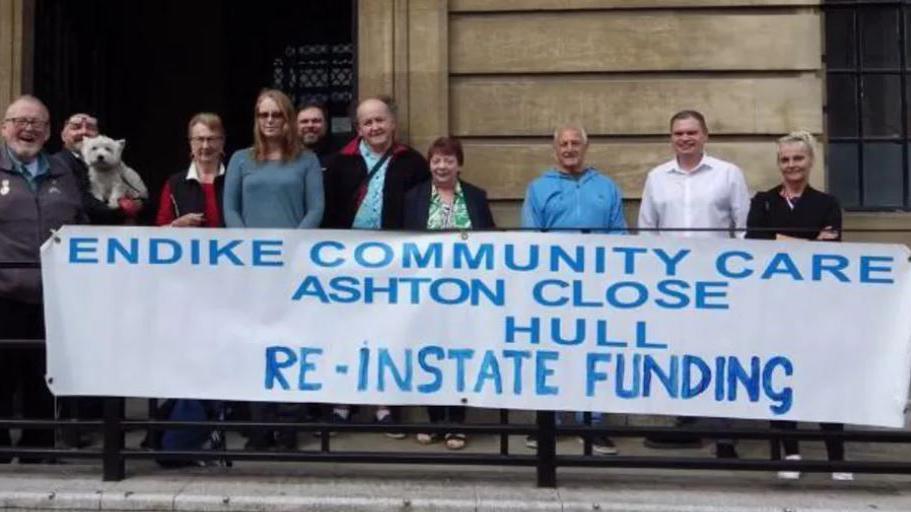
Staff and families took their funding plea directly to Hull City Council
On 20 June, manager Eileen Wright, along with her staff and members of the families who rely on the centre, gathered at Hull's Guildhall – armed with a banner – to urge councillors to reinstate their funding.
Inside the chamber, Stewart Eyles, 77, pleaded with councillors to take action.
Back at the centre, Mr Eyles sits holding his wife Linda's hand. Also aged 77, she has dementia and Parkinson's disease.
"This was very out of character for me, but I pointed at each of the councillors and told them it could be them one of these days," he says. "Any one of us could get dementia.
"I wanted them to understand what this centre means to families like mine."
Like Mr Conn, he says the centre provides respite, allowing him to do chores and unwind.
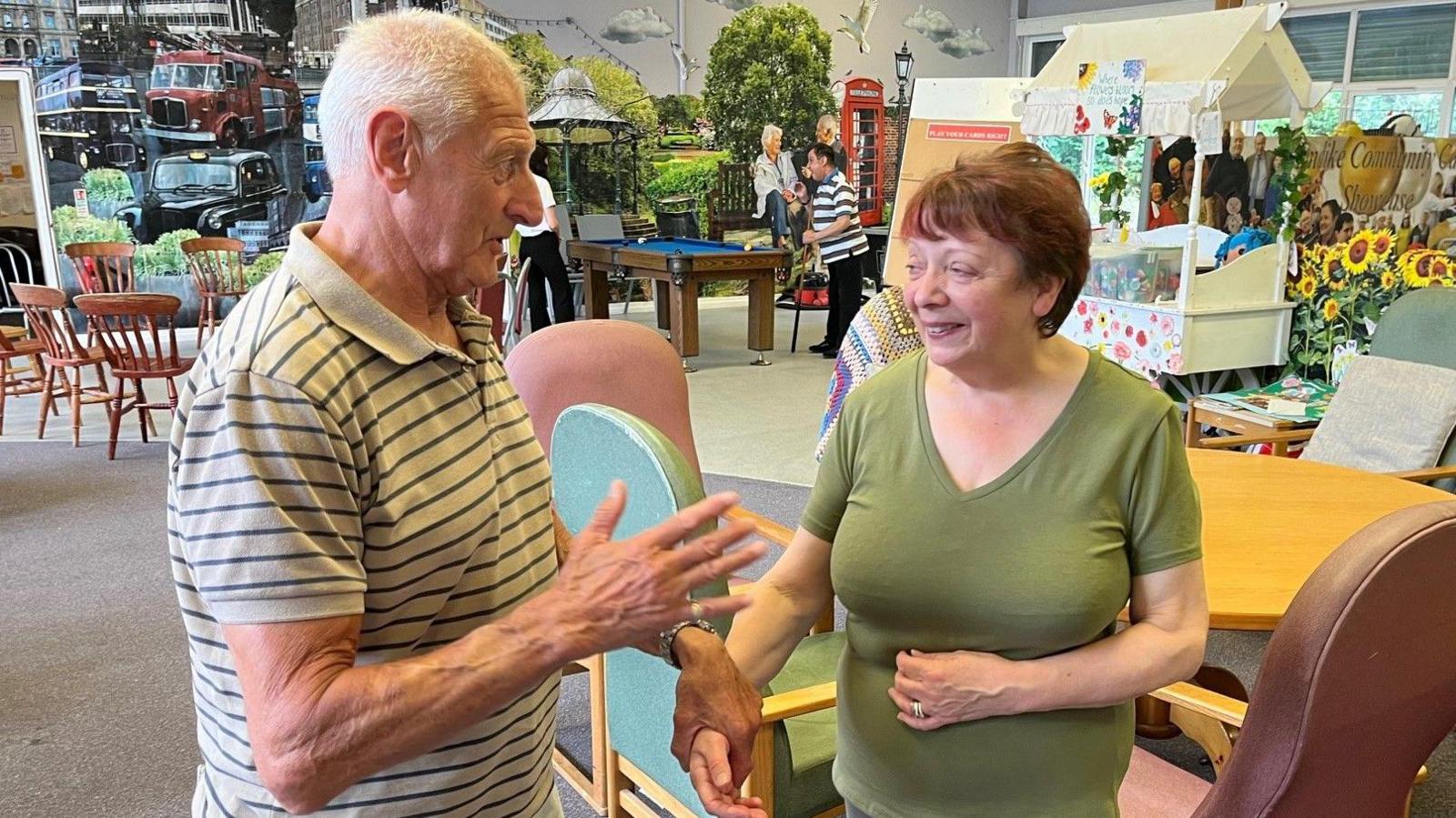
Stewart Eyles with manager Eileen Wright
Close to tears, Mr Eyles tells me: "I've been torn. I've thought, many times, would she be better off in a home, but when I've asked her she says, 'I want to be with you'.
"I can't let her go. She is the love of my life. I don't want to turn my back on her."
Mr Eyles says that while he understands councils are under severe financial pressure, some services should be protected at all costs. "This is one of them," he adds.
The couple's daughter Lorna Barker, 54, says she has "seen a difference" in her mother since she began using the centre.
Ms Wright, the long-serving manager, insists that she is not exaggerating the severity of the crisis.
"We're in trouble," she says. "We will be forced to close in a couple of months if funding cannot be found.
"If this place closes, there will be a lot of suffering. People were crying when we explained what would happen. I've told them I will do all I can to stay open, but I don't know what the future holds for us.
"I believe the council has a duty of care to these people."
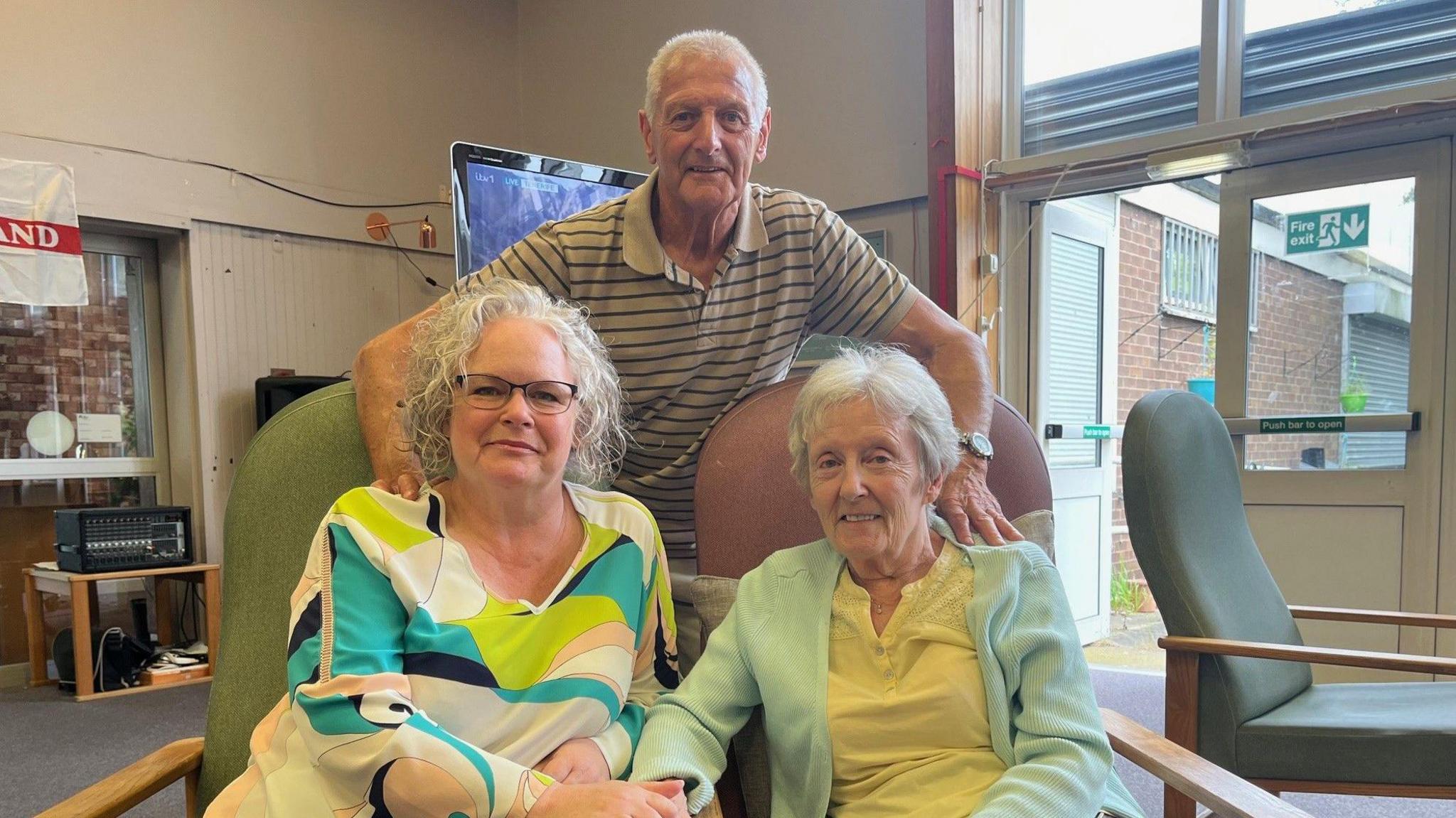
Mr Eyles with his wife Linda and their daughter Lorna Barker
Carer Liz Gladwin has worked at the centre for 23 years. She describes it as "being like a family".
"We all have a real passion for Endike Community Care," she tells me. "When it started out, it was more of a pop-in centre. Now we are providing care for people with very high level needs.
"We're also seeing people far younger than before – people in their mid 50s, with heart-wrenching stories. Some of their relatives – their main carers – come to us in tears as they just can't cope. We help lighten the load."
Hull City Council has told the BBC that Endike Community Care received a time-limited grant from the authority, which ended in September 2023.
It had been working with the centre for "many months", providing support and "advice on how the organisation can become more sustainable".
This support included increasing the number of individuals being placed at the centre for day care. From 1 July, this number would rise from six to 10.
The council's full statement can be found here.
Follow BBC East Yorkshire on Facebook, external, X (formerly Twitter), external and Instagram, external. Send your story ideas to eastyorkslincs.news@bbc.co.uk, external
Related topics
- Published21 June 2024
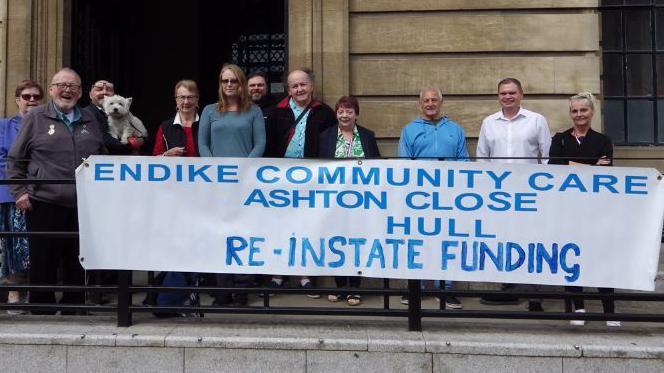
- Published16 October 2022
